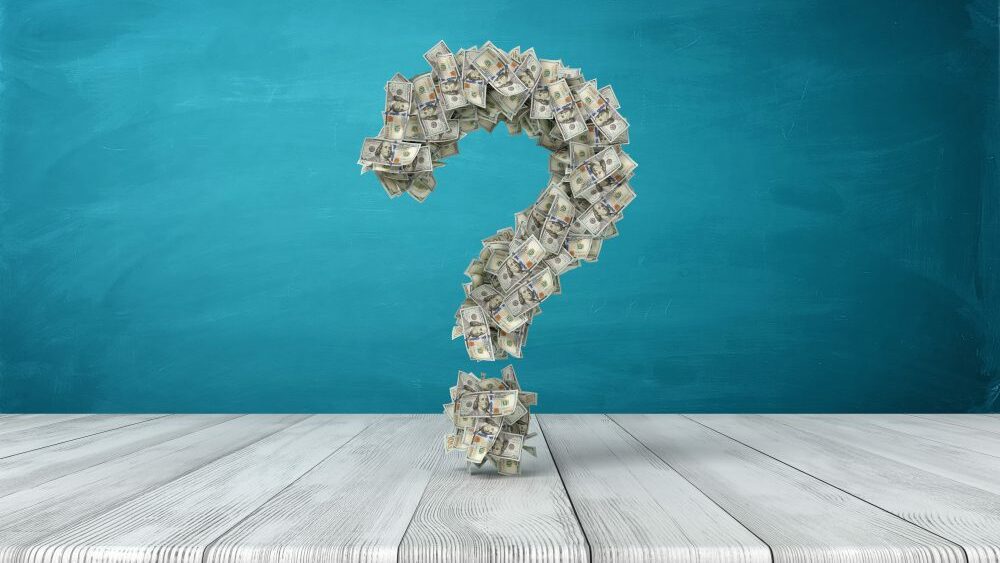Filing for bankruptcy can be a complex and overwhelming process. When filing for bankruptcy, a trustee is appointed to your case to oversee the proceedings and ensure that the process is conducted in an orderly and fair manner. In this article, we’ll provide an overview of the bankruptcy process, the different types of bankruptcy, and the role of the bankruptcy trustee. Additionally, we’ll discuss what the bankruptcy trustee investigates and the potential consequences of bankruptcy fraud.
The bankruptcy process involves filing a petition with the court and completing the required paperwork, including schedules that list all assets, debts, income, and expenses. Once the bankruptcy petition is filed, an automatic stay goes into effect, which prevents creditors from taking any further collection action against the debtor. The bankruptcy trustee is then appointed to the case to oversee the process and ensure that the debtor’s assets are properly distributed to their creditors.
Different Types of Bankruptcy

There are several different types of bankruptcy, each with its unique set of rules and requirements. Chapter 7 bankruptcy is the most common type and involves the liquidation of assets to pay off creditors. Chapter 13 bankruptcy is a reorganization of debt that allows individuals to keep their assets and pay off their debts over a period of three to five years.
Chapter 11 bankruptcy is typically used by businesses and involves a reorganization of debt to allow the company to continue operating. Chapter 12 bankruptcy is specifically designed for family farmers and fishermen who need to restructure their debt. Each type of bankruptcy has its pros and cons, and individuals should consult with a bankruptcy attorney to determine which option is best for their situation.
Role of the Bankruptcy Trustee
The role of the bankruptcy trustee varies depending on the type of bankruptcy being filed. In a Chapter 7 bankruptcy, the trustee is responsible for identifying the debtor’s non-exempt assets, selling those assets, and distributing the proceeds to the debtor’s creditors. In a Chapter 13 bankruptcy, the trustee is responsible for reviewing the debtor’s proposed repayment plan, ensuring that it complies with the law, and making distributions to creditors according to the plan.
What Does the Bankruptcy Trustee Investigate?
The bankruptcy trustee investigates various aspects of the debtor’s finances to determine the best way to repay creditors. Here are the key areas investigated by the bankruptcy trustee:
- Assets: The bankruptcy trustee will review all of the debtor’s assets to determine their value and whether they are exempt or non-exempt.
- Transfers: The trustee will investigate any transfers or sales of assets that occurred within two years prior to filing for bankruptcy to determine whether they were fraudulent or preferential.
- Income: The bankruptcy trustee will verify the debtor’s income, including sources of income, to ensure that it is accurately reported and that all required documentation has been submitted.
- Debts: The trustee will examine the debtor’s outstanding debts to determine the amount owed and to whom.
- Preferences: The trustee will investigate whether any creditors have been given preferential treatment in the months leading up to filing for bankruptcy.
- Fraud: The trustee will investigate any evidence of fraud or misrepresentation by the debtor, including false statements made on bankruptcy paperwork.
Conducting the Investigation

The bankruptcy trustee uses various methods to investigate a debtor’s finances, including reviewing financial documents, conducting interviews, and examining bank records. It’s essential for debtors to cooperate fully with the trustee’s investigation, as failure to do so could result in penalties or even dismissal of the bankruptcy case.
Potential Consequences of Bankruptcy Fraud
Bankruptcy fraud is a serious offense that can result in both criminal charges and civil penalties. Additionally, if a debtor is found to have committed bankruptcy fraud, their bankruptcy case may be dismissed, and they may lose the right to file for bankruptcy in the future.
Conclusion
The role of the bankruptcy trustee is to ensure that the bankruptcy process is conducted fairly, honestly, and transparently. Debtors must provide accurate and complete information to the trustee during the investigation to avoid potential consequences, including penalties, dismissal of the bankruptcy case, or even criminal charges. By working closely with the trustee and being honest and transparent throughout the process, debtors can achieve a fresh financial start and move towards a better financial future.
FAQs

What is a bankruptcy trustee?
A bankruptcy trustee is a court-appointed individual who oversees the administration of bankruptcy cases and is responsible for ensuring that the interests of both the debtor and the creditors are protected.
What does the bankruptcy trustee investigate?
The bankruptcy trustee is responsible for investigating the debtor’s assets, liabilities, and financial affairs to determine the extent of their debts and to ensure that all eligible assets are distributed fairly among the creditors.
What types of assets does the trustee investigate?
The trustee will investigate all assets owned by the debtor, including real property, personal property, bank accounts, and investments.
What happens if the trustee discovers undisclosed assets?
If the trustee discovers undisclosed assets, the debtor may be subject to penalties or even criminal charges for fraud.
How does the trustee determine which assets are exempt from liquidation?
The trustee will review the debtor’s claimed exemptions and determine which assets are exempt from liquidation based on the applicable state and federal bankruptcy laws.
Can the trustee sell exempt assets?
No, the trustee cannot sell exempt assets as they are protected from liquidation.
Can the trustee investigate the debtor’s income?
Yes, the trustee may investigate the debtor’s income to determine their ability to repay their debts.
What happens if the debtor fails to cooperate with the trustee’s investigation?
If the debtor fails to cooperate with the trustee’s investigation, the trustee may seek court intervention to compel the debtor to comply.
Can the trustee recover assets that were transferred prior to filing for bankruptcy?
Yes, the trustee may seek to recover assets that were transferred prior to filing for bankruptcy if they were transferred with the intent to hinder, delay, or defraud creditors.
How long does the trustee’s investigation typically last?
The duration of the trustee’s investigation depends on the complexity of the case and the cooperation of the debtor. In most cases, the investigation lasts several months.
Glossary
- Bankruptcy Trustee: A court-appointed official who oversees the bankruptcy process and investigates the debtor’s financial affairs.
- Bankruptcy: A legal process in which a person or business declares that they are unable to pay their debts and seeks relief from creditors.
- Assets: Property or items of value that a debtor owns, including real estate, vehicles, investments, and personal belongings.
- Liabilities: Debts owed by the debtor to creditors, including loans, credit card balances, and unpaid bills.
- Fraudulent Transfers: Transactions made by the debtor to transfer assets or funds to another person or entity with the intention of hiding them from creditors.
- Preferential Transfers: Payments or transfers made by the debtor to certain creditors before filing for bankruptcy, which may be considered unfair to other creditors.
- Exemptions: Certain types of property or assets that are protected from being sold or used to pay creditors in a bankruptcy case.
- Discharge: A court order that releases the debtor from their debts and liabilities, except for certain types of debts such as tax obligations and student loans.
- Chapter 7 Bankruptcy: A type of bankruptcy in which the debtor’s assets are sold to pay off creditors and the remaining debts are discharged.
- Chapter 13 Bankruptcy: A type of bankruptcy in which the debtor creates a repayment plan to pay off creditors over a period of three to five years.
- Creditors: Individuals or entities to whom the debtor owes money or other obligations.
- Income: Money earned by the debtor from employment, investments, or other sources.
- Budget: A plan that outlines the debtor’s income and expenses, including their ability to pay off debts.
- Trustee’s Report of No Distribution: A report filed by the trustee in a bankruptcy case when there are no assets to distribute to creditors.
- Meeting of Creditors: A meeting held during the bankruptcy process in which the debtor and their creditors can discuss the case and ask questions.
- Proof of Claim: A document filed by a creditor in a bankruptcy case to request payment for debts owed.
- Objection to Discharge: A legal challenge to the debtor’s request for a discharge of their debts.
- Adversary Proceeding: A lawsuit filed in bankruptcy court to resolve disputes between the debtor and creditors.
- Bankruptcy Estate: The property and assets that are subject to distribution to creditors in a bankruptcy case.
- Reaffirmation Agreement: An agreement between the debtor and a creditor to continue paying off a debt after a bankruptcy discharge.










